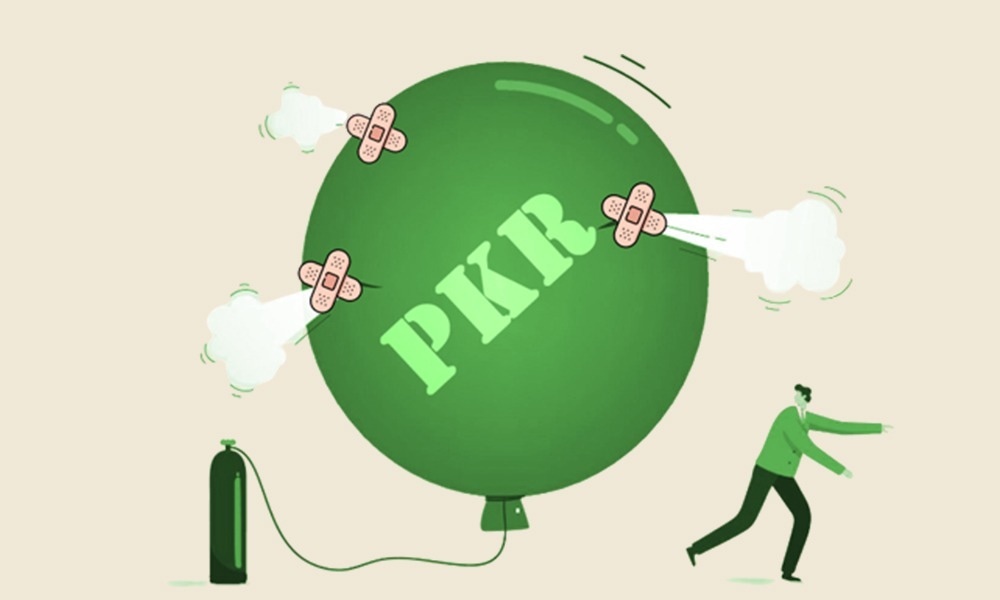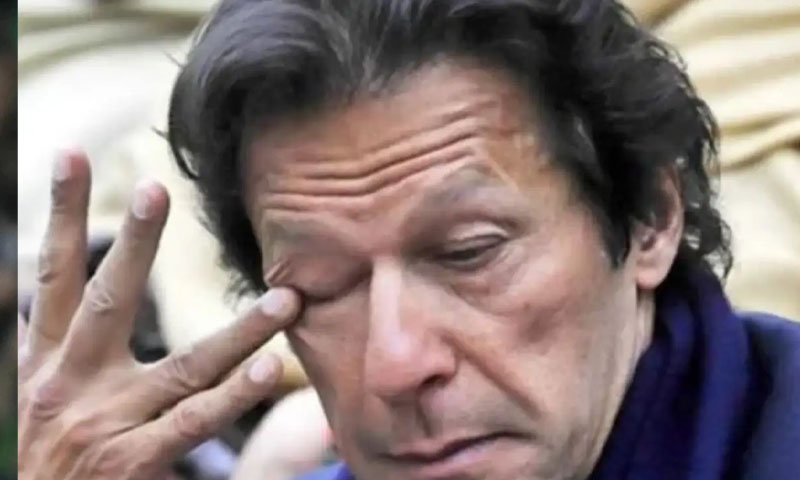- Web
- 30 Minutes ago
Interim govt to tackle soaring dollar through crackdown on unauthorized forex dealers
-

- Web Desk
- Aug 26, 2023

ISLAMABAD — Responding to the escalating value of the dollar in the open market, which reached an alarming Rs317 by week’s end, the interim government of Pakistan has taken a decisive stance against unauthorised foreign exchange dealers.
Sources reveal that the crackdown decision was prompted by the historic breach of the Rs300 threshold in the rupee-dollar parity during inter-bank trading. The surge, attributed to heightened dollar demand stemming from imports, economic dollarisation, smuggling, and Afghanistan’s import financing, prompted an urgent response.
A collaborative effort involving representatives from the State Bank of Pakistan (SBP), Ministry of Finance, Federal Investigation Agency (FIA), Intelligence and Investigation (I&I) Customs, and intelligence agencies culminated in a joint working group meeting, according to The Express Tribune.
While participants discussed strategies to counter the crisis, the Ministry of Finance has refrained from issuing an official statement.
It has emerged that a comprehensive plan to address the currency exchange market turmoil, which threatens to catalyse inflation, is yet to be solidified. Notably, the meeting highlighted the pivotal role of unauthorised foreign exchange dealers in facilitating smuggling. Central bank officials underscored their responsibility in currency smuggling and advocated for their prosecution.
Dollar climbs to record high against Pakistani rupee
Consequently, the FIA has been entrusted with the task of taking action against these unauthorised dealers. The central bank disclosed that over 50 licensed dealers, operating through more than 500 branches across Pakistan, are authorised players in the market.
As of last week, official foreign currency reserves dwindled to $7.93 billion, despite acquiring fresh loans exceeding $5 billion in July. Pakistani law enforcement agencies have struggled to curtail the flow of dollars to Afghanistan, a covert operation facilitated through unconventional means such as crates of oranges, in collaboration with complicit law enforcement bodies.
The challenge lies in securing borders and international airports, which have inadvertently transformed into hubs of smuggling activity. A further deterrent, the central bank’s reduction of outbound greenback flow to $5,000 per individual, has inconvenienced citizens without effectively stemming the outflow.
Insiders attribute the surging dollar demand to multiple factors, including the financing of contraband from Iran—primarily diesel and edible oil—and payments for Afghan transit trade. Authorities point out that diesel smuggling from Iran into Pakistan implicates agencies responsible for border security and counter-smuggling efforts, as smuggled diesel payments to Iran are made in US dollars.
Similarly, Afghan transit trade relies on purchasing dollars from Pakistan’s market, yet the exact magnitude of this practice remains elusive, according to customs officials. Regrettably, insufficient attention has been dedicated to addressing these underlying issues, which are instrumental in driving the escalating dollar prices.




